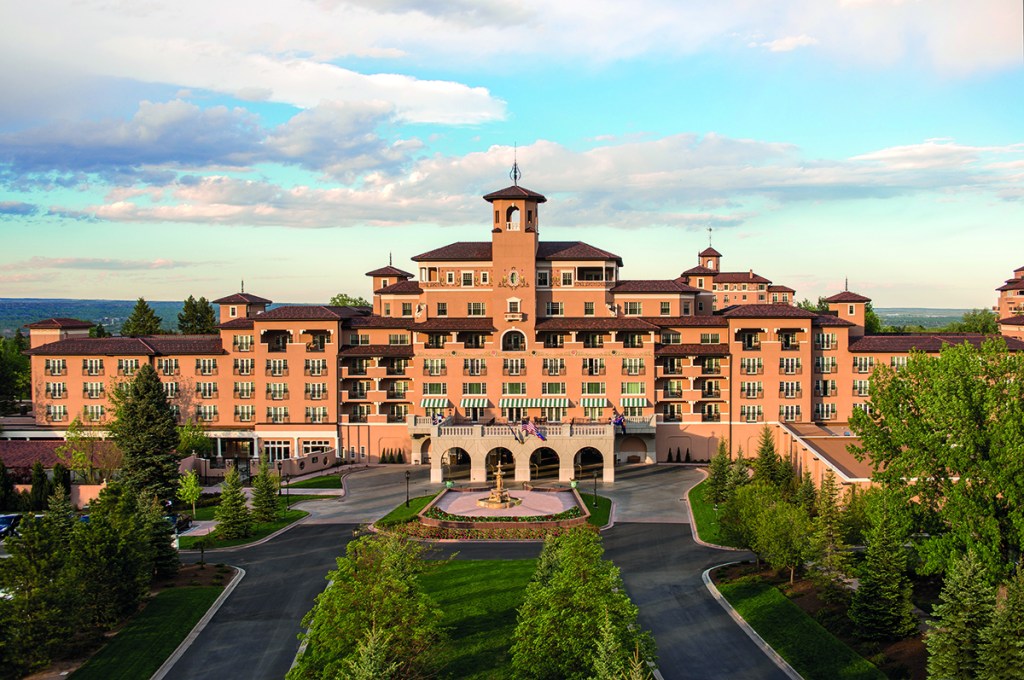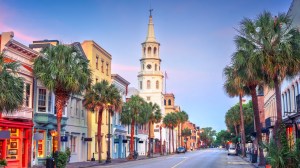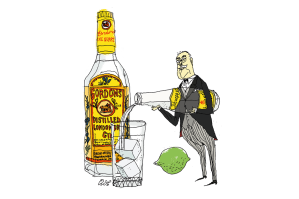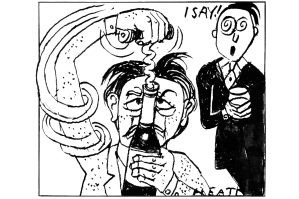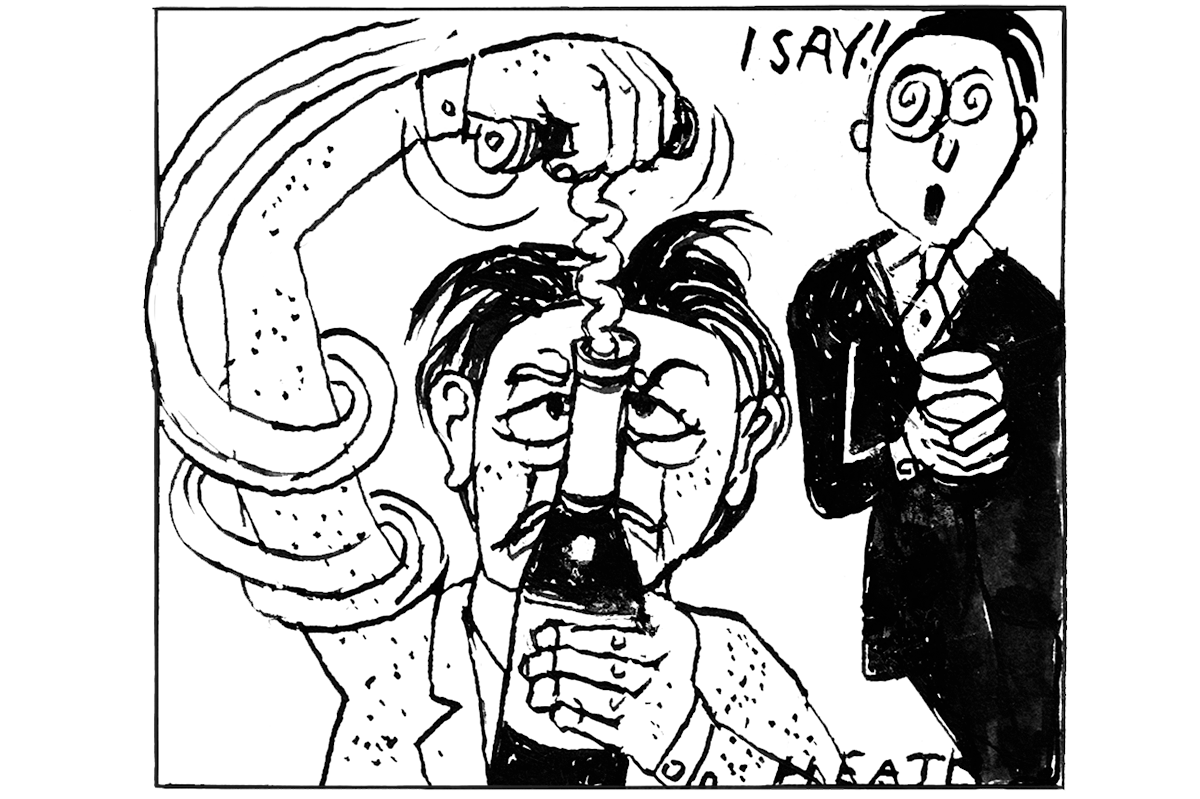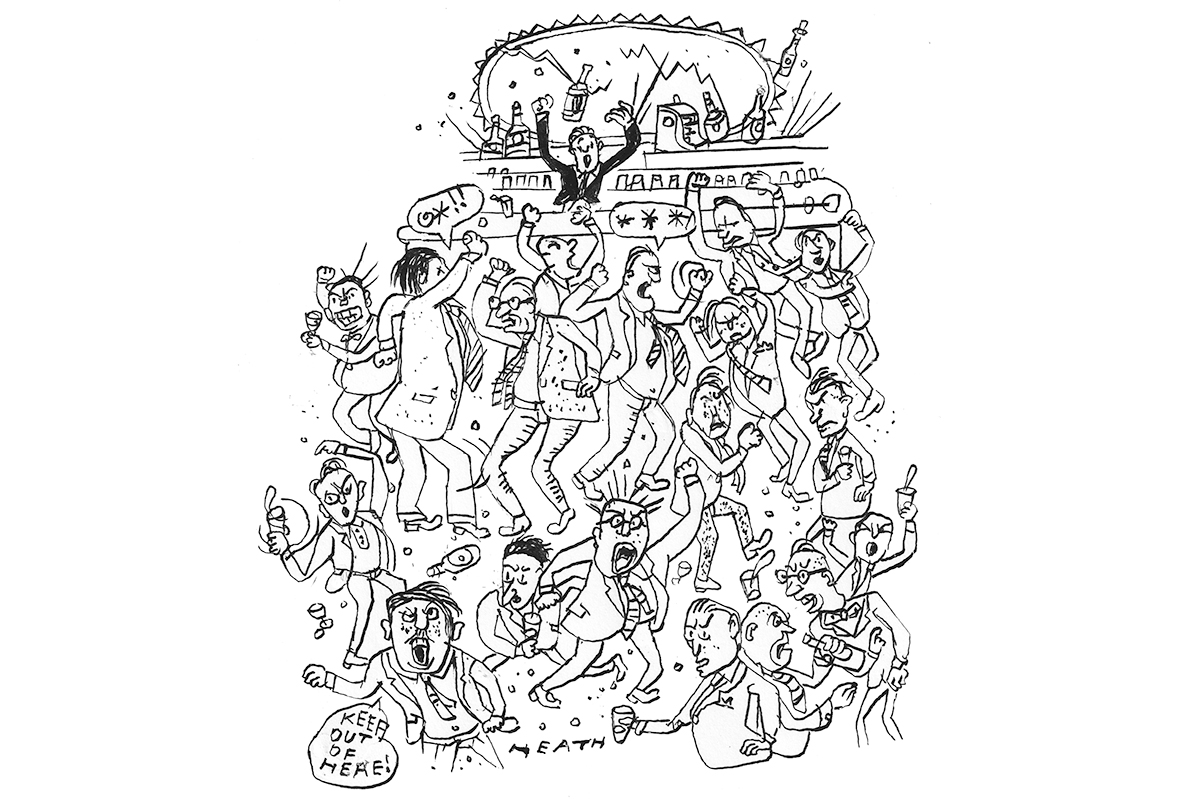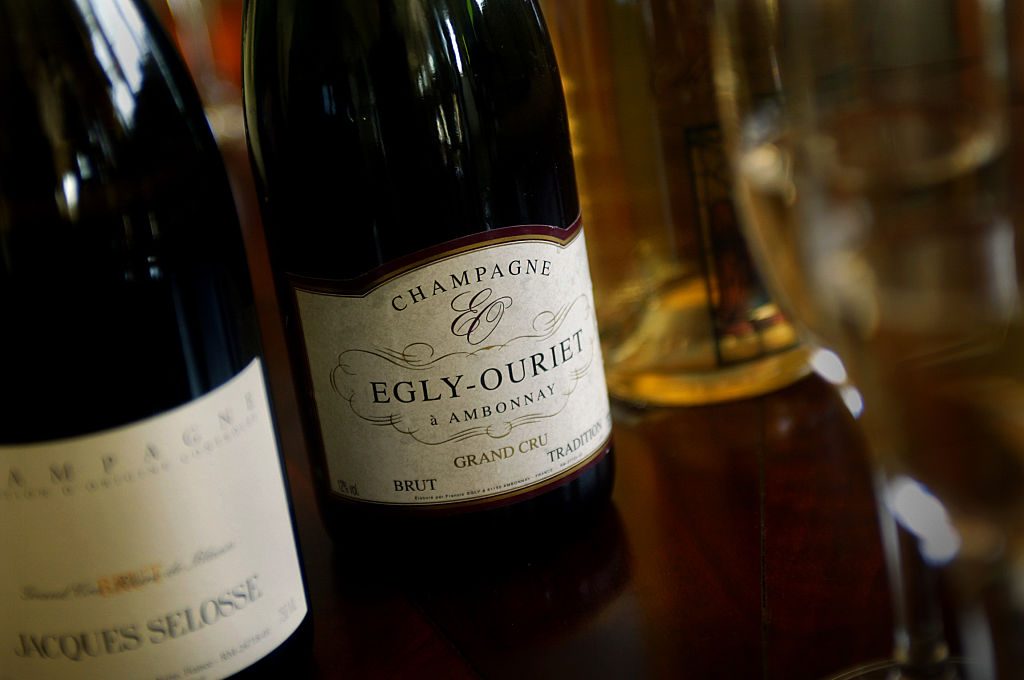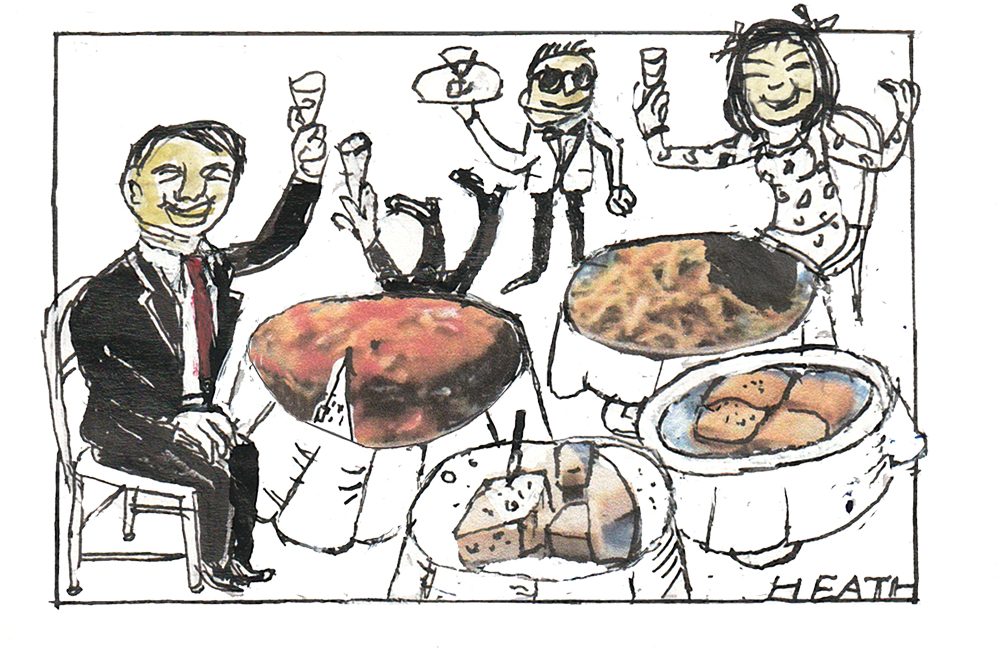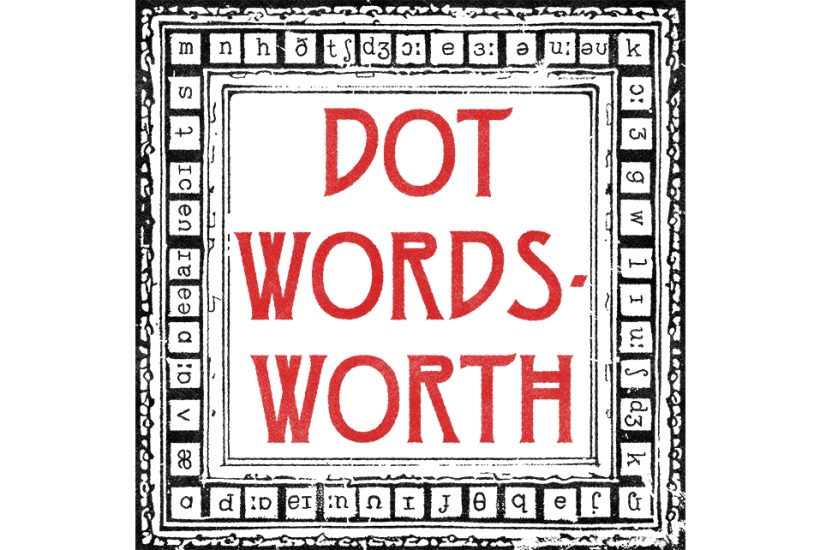There are many reasons to visit the magnificently storied and illustrious Broadmoor Hotel, in the Rocky Mountain resort town of Colorado Springs. It has a glamorously luxe and gleaming spa. They will do you a superb dry martini with its own cute little carafe. Prince Harry once nipped into this pink-stone Italianate palace for a cheeky pint.
But it’s the fantastical history of the Broadmoor that really compels, and which also tells us something possibly rather important about the relationship between politics and alcohol.
The owner-founder of the Broadmoor was a failed-at-Harvard bon viveur by the name of Spencer Penrose. Very much the eccentric black sheep of a blue-blood Yankee family, Penrose made his money in Western mining — mainly gold — and then in 1918 poured all of it into the Broadmoor, his dreamily hedonistic hotel. He built ballrooms, swimming pools and neo-Renaissance lobbies. He turned half the grounds into a free-for-all zoo with monkeys in the trees, seals and flamingos in the lakes, and an elephant that Penrose would ride onto the hotel golf course.
Penrose also liked a drink. And I mean, he really liked a drink. The possessor of only one eye, Penrose had two spare glass eyes, one of which was “bloodshot” so it would match his real bloodshot eye on the days when he was properly hung over.
Those headachy days were quite common, even during the detested period of Prohibition. At a time when liquor was banned throughout America, Penrose threw elaborate parties where esteemed men (with their mistresses, of course) were invited for a weekend and advised to bring five bottles of their own “cologne.” Penrose then shipped in his guests via private train all the way from Grand Central Station.
And when he wasn’t imbibing with guests, Penrose was hoarding his own sauce: during a recent major refurb of the hotel, astonished builders found Penrose’s enormous personal cache of alcohol under the celebrated swimming pool, including an 1850 Hunt’s Empress Port, a Margaux from 1891, an 1895 Calvados, a 1906 Moët et Chandon, plus bottles and bottles of long-lost “Old Tom Gin,” “Kentucky Medicinal Brandy” and “Something Special Scotch Whisky,” alongside obscure hocks, liqueurs, beers, stouts, sherries — the works.
Many of these fabulous bottles are now displayed in “bottle alley” in the basement of the Broadmoor — a corridor lined with vitrines stuffed with the most notable examples from Penrose’s own stash — and significant bottles drunk since.
One bottle in particular stands out. It’s a “Jordan” California Cabernet Sauvignon from the Alexander Valley, vintage 1984. To be honest, it’s not an exceptional wine; its notability, though, comes from the man who languidly signed the label. As guests may discern from the squiggled signature, the bottle is signed by George W. Bush.
The presence of Bush Jr. is unsurprising — the Broadmoor has hosted rich and famous Americans throughout its long century of opulent holidaying: from Dwight Eisenhower (loved the golf) to John Wayne (loved the shrimp). So why was Dubya there in 1989? In a phrase: to get hammered. Yet again.
The story goes like this: the young G.W. Bush spent a long evening in the Golden Bee (the hotel’s echt London pub, carefully transported brick by brick from the Smoke via New York City many decades ago). In the morning, Dubya woke up, head throbbing, and gazed mournfully at the bottle he’d been quaffing. There and then Bush decided to quit alcohol for good. Draining the last of the wine for breakfast, he then signed the label, as a way of reminding himself of his vow of abstinence. Bush has, famously, never drunk since.
Was his sobriety a good idea? Only Bush can answer that. But when you gaze at that signed Cali cab sauv, you can’t help wondering if the world might have been better if G.W. Bush had remained rather fond of a drop. Instead of invading Iraq, perhaps he could have downed a negroni, or a nice big Old Fashioned. Of course, if he’d stayed a tippler all his life, it is quite likely Bush would not have reached the presidency at all, preferring to try interesting new Malbecs from Mendoza, rather than the obliteration of central Baghdad. Would that have been such a bad outcome for humanity?
It’s not like the overall list of teetotal or near-sober politicians is particularly inspiring. Adolf Hitler was notoriously abstemious, preferring vegetable soup and Blitzkrieg to a decent Riesling. The emperor Hirohito was likewise a sake-refusenik. And of course, Vladimir Putin only drinks tiny sips of vodka — when he is forced to, at receptions — instead preferring to invade and devastate neighboring countries.
Naturally there are many counterexamples of famously bibulous politicians, good and bad, left and right — from Boris Yeltsin to Joseph Stalin, from Benjamin Franklin to Winston Churchill, from Nigel Farage to Jean-Claude Juncker. Nonetheless it is arguable that an appetite for alcohol, in moderation, is probably a good thing in a politician, as it means a liking for life and joy, and a more normal, rounded perspective on the world.
All of which is something to mull over — perhaps over a glass of mulled wine — as the Brits observe the elevation of their sober new prime minister, Rishi Sunak, and as the Americans regard the totally dry, never-drunk President Joe Biden, and contemplate his potential replacement: the totally-sober, doesn’t-touch-a-drop Donald Trump. Though rumor has it that Governor Ron DeSantis won’t say no to a margarita.
This article was originally published in The Spectator’s January 2023 World edition.



